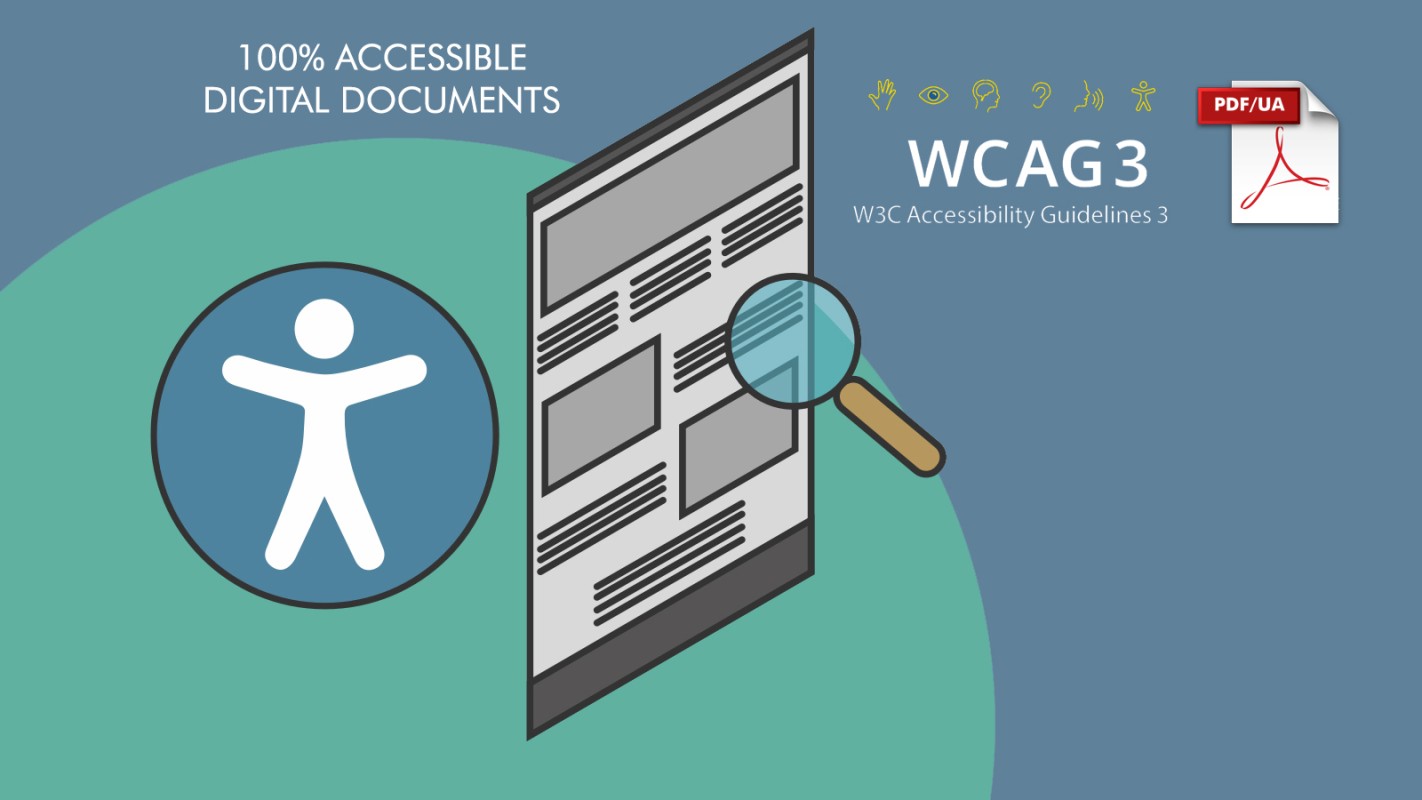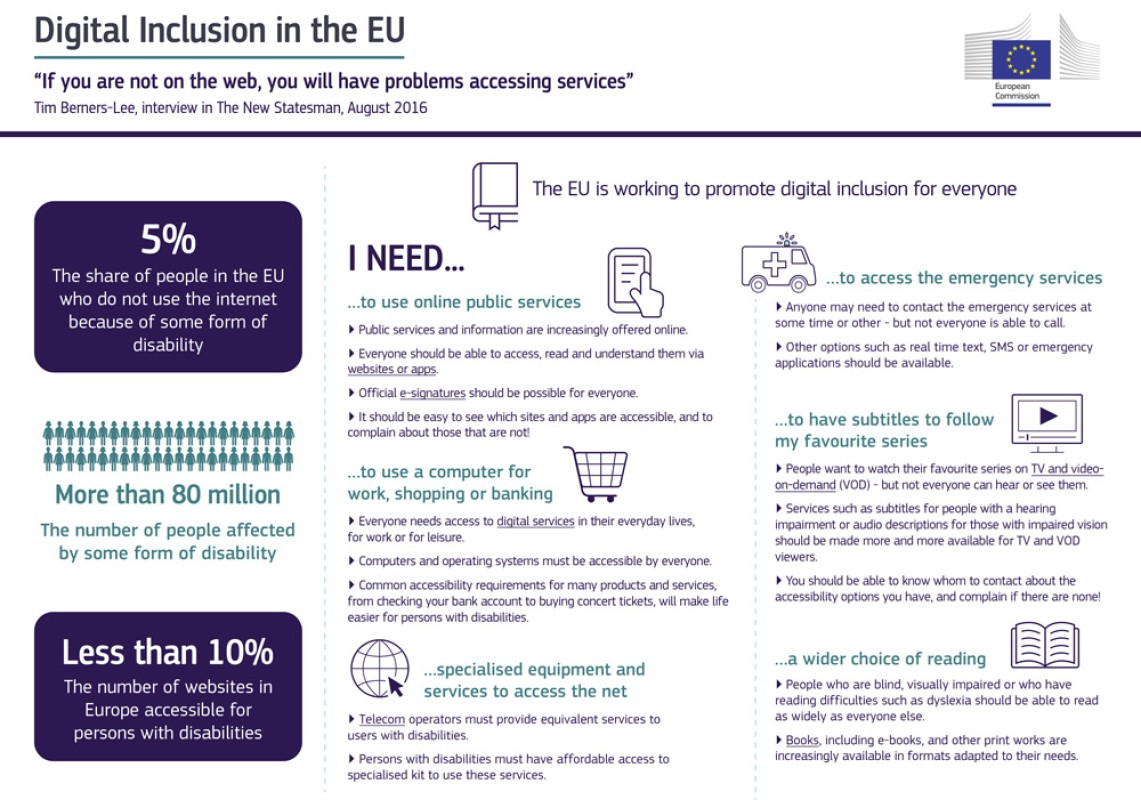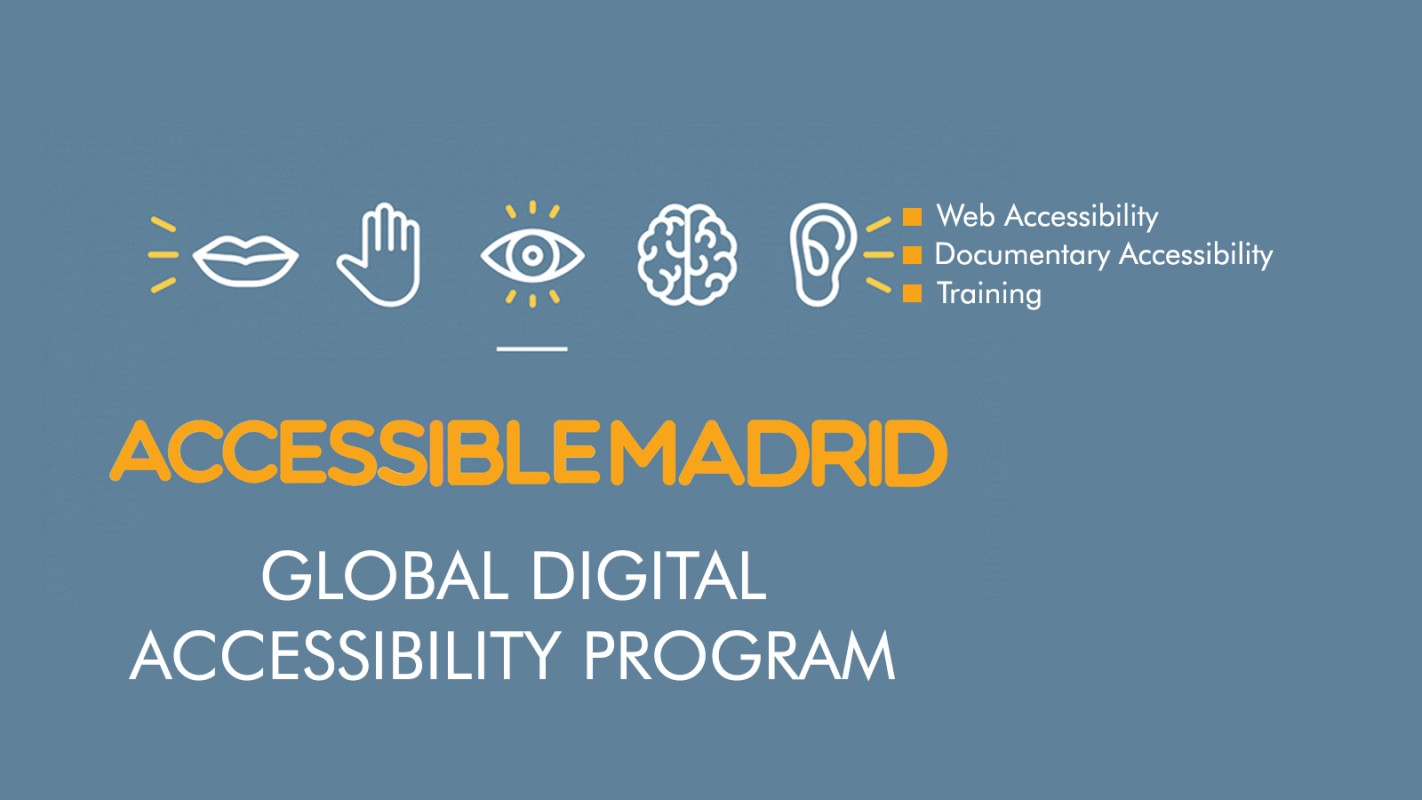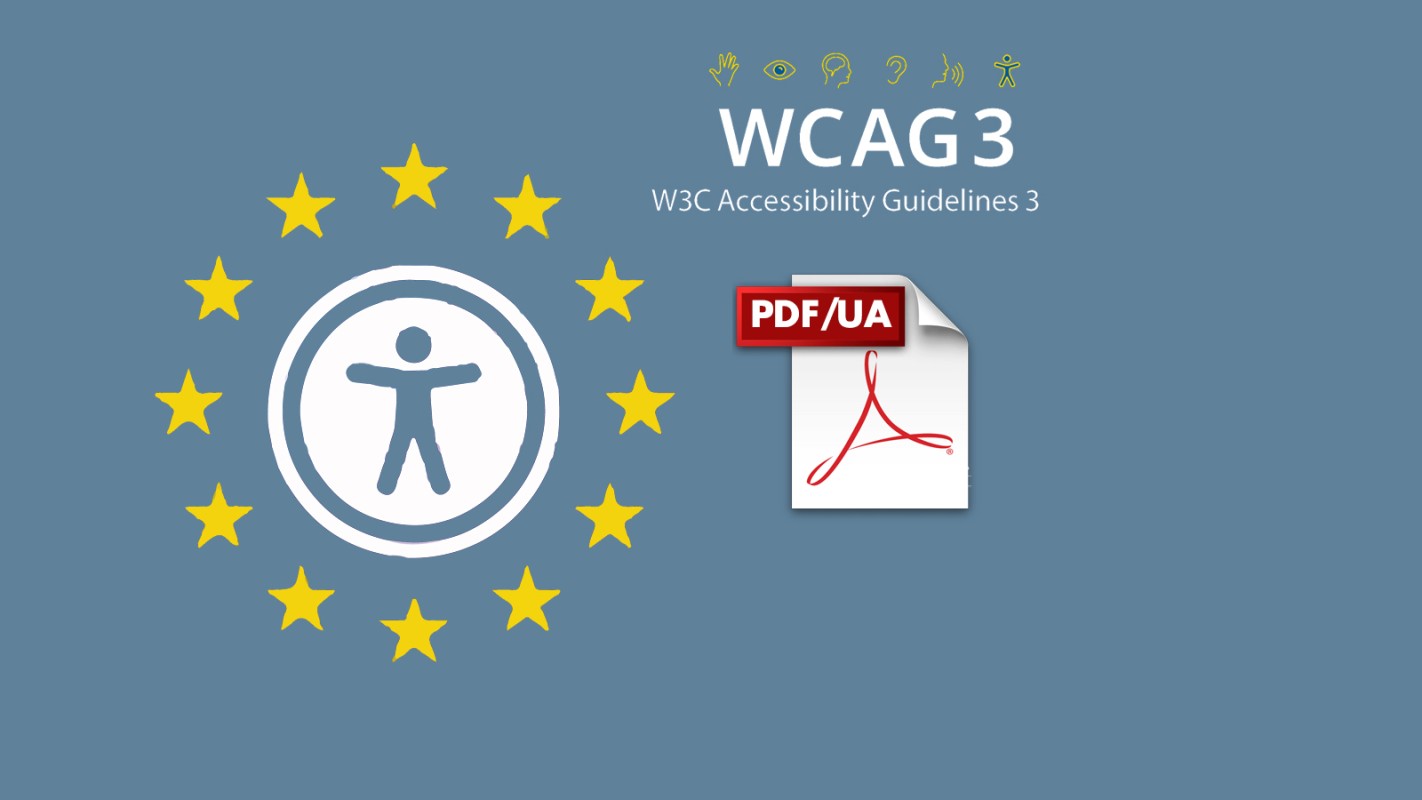Digital Accessibility: Websites, Applications and Document Remediation
Digital Accessibility: Websites, Applications and Document Remediation
At Accessible Madrid we are specialists providing Digital Accessibility Services such as:
- Accessibility audits and remediation
- Accessible website and application development
- Document remediation and accessible e-learning development
We are a experienced company providing application development, training development, and accessibility consulting services to corporations, state and local agencies, and institutions of higher education.
Web Accessibility
Web accessibility allows users, including people with disabilities, to perceive, understand, navigate and interact with the Internet.
Having a strong Internet presence is necessary. If you want people to use your site, you need to make that site usable and accessible for all.
Via Digital Accessibility, small changes that make websites and apps more user-friendly can bring huge improvements for everyone, not just users with disabilities. For instance, being able to listen to a text when there is not enough light to read or when multitasking, or reading subtitles to a video in a noisy environment.
Expand your audience through Digital Accessibility
Businesses with accessible services can reach a larger, mostly untapped customer base, and experience an economic gain from doing so. An estimated 100 million people in the EU have some form of disability, and so represent an important market.
Web accessibility: A commitment to society
Web and digital accessibility is not only about technical standards, web architecture and design. It is a matter of political will and of moral obligation, enshrined in the United Nations Convention on the Rights of Persons with Disabilities (UNCRPD). Article 9 of the Convention, to which the EU and its Member States are party, requires that appropriate measures are taken to ensure access for persons with disabilities, on equal basis with others, to information and communication technologies, including the Internet.
What is remediation? W3C Accesibility
Accessibility remediation is the process of bringing your digital assets—such as websites, applications, and documents—into compliance with recognized standards of accessibility with the goal of providing a better user experience for people with disabilities. Typically, accessibility standards are based on Web Content Accessibility Guidelines (WCAG) 2.0 or 2.1:
WCAG is often mentioned in legal decisions regarding website accessibility.
What types of digital assets can be remediated?
Accessibility remediation services are available for- websites
- applications
- web, desktop, mobile, tablet, or other device components
- documents and Microsoft Office application files and PDFs
- forms
- graphical documents and image files
- other media files such as video and audio
- complex structures (tables, animations, carousels, interactive elements, etc.) within various file types
What Can Accessible Madrid Make for Your Digital Accessibility?
Accessible Madrid offers both Consulting and Training Services in Digital Accessibility.Consulting Digital Accessibility Services:
Accessible Madrid provides a global accessibility consulting service, including diagnosis and improvement proposals, implementation of the plan with user validation, evaluation and advice on the communication of the objectives achieved. All this, with a constant accompaniment throughout the process. Web/App & Document Remediation.Training on Digital Accessibility Services:
Accessible Madrid provides training courses on digital accessibility on various areas.- Accessibility Audits — Audits reveal accessibility gaps in existing websites, web applications, native applications, documents, mobile devices, tablets, training, etc. Manual and automated tests and highly structured processes gauge accessibility compliance on new, existing, and remediated products.
- Accessible Social Media Training - Social media platforms can present unique challenges for users with disabilities, many of which are beyond your control. We instruct your teams not only how to use the accessibility features that are available on these platforms, but also valuable work-arounds to counter those that are not.

- Accessible Elearning Development —Accessible learning modules include Customer Support training (for people with special needs), video, audio, captioning, simulation, social media, webinars, virtual training, etc.
- Accessible Document Services— We work with your teams in order to remediate existing content, and establish best practices to address and maintain accessibility—from creation to publishing.
- Accessibility Remediation for Websites, Applications, and Documents — Existing content can be remediated rather than starting new contents. Evaluation, remediation, and conversion services are available for websites, applications, documents, and multimedia files, as well as themes and components for the web, desktop, mobile, tablets, or other devices. Digital file remediation services include document, presentation, and PDF remediation.
The Web Accessibility Directive
The Web Accessibility Directive (Directive (EU) 2016/2102) has been in force since 22 December 2016 and provides people with disabilities with better access to websites and mobile apps of public services.The rules laid down in the Directive reflect the Commission's ongoing work to build a social and inclusive European 'Union of equality', where all Europeans can take a full and active part in the digital economy and society.
The 15-page directive requires all public sector websites and applications in EU member states to implement, enforce, and maintain a uniform set of accessibility standards. There are a limited number of exceptions that include broadcasters and live streaming. Sites and apps that fail to comply with the directive risk fines and other legal penalties, along with the negative publicity and consumer backlash that comes with operating an exclusionary site.
The Directive requires:
- an accessibility statement for each website and mobile app;
- a feedback mechanism so users can flag accessibility problems or request information published in a non-accessible content;
- regular monitoring of public sector websites and apps by Member States, and reporting on the results.
The Directive complements the European Accessibility Act which covers a wide range of products and services also in the private sector. Further European legislation supports people with disabilities in other areas including electronic communications, audio-visual media services, ebooks, eCommerce and ICT equipment. Highlights of how these EU policies affect digital accessibility are in the infographic on 'Digital Economy and Society' legislation.

Who does the EU Web Accessibility Directive cover?
Officially, the Web Accessibility Directive applies to public sector bodies. That includes governmental websites such as:- State, regional, and local authorities
- Bodies governed by public law and financed via public contract, as defined in point (4) of Article 2(1) of Directive 2014/24/EU
- Associations formed by those above, if those associations are established for the specific purpose of meeting needs of general interest, and do not have an industrial or commercial carácter
There are some exclusions, including public service broadcasters, most schools, and non-governmental organizations (NGOs) that do not provide services “essential to the public” or address the needs for persons with disabilities.
What is the impact of the Directive on private organizations?
Although the Web Accessibility Directive only specifically applies to public sector websites and apps, it will have a noticeable impact on many private companies as well. Organizations that regularly do business with or provide products or services such as software to governmental sites will need to be sure that their accessibility standards measure up. Private sector companies that offer similar services to those provided by public sites may also risk alienating users with disabilities if their websites or apps provide a less accessible experience.
When does the directive take effect?
While the directive was originally passed in 2016, the EU has given member states a fairly generous timeframe in which to implement all of the required accessibility changes.
- Transposition Phase: Effective September 23, 2018, Member states must have a reasonable plan in place for incorporating the accessibility directive into their national legislation
- Implementing Acts: Effective December 23, 2018, Member states must have each of the following in place for all public sector websites and apps, based on model statements and methods posted by the European Commission:
- A publicly posted, regularly updated accessibility statement explaining accessible content standards and providing users with a link to provide feedback
- An accessible feedback mechanism
- An enforcement procedure detailing penalties and processes for non-compliance
- Standards for monitoring methodology and reporting
- Uniform technical specifications for mobile applications
- Compliance Phase: Establishes deadlines for full EU Website Accessibility Directive compliance:
- New websites (published after September 23, 2018): Effective September 23, 2019
- Older websites (published before September 23, 2018): Effective September 23, 2020
- Mobile applications: Effective June 23, 2021
Transposition of the Web Accessibility Directive
Member States had until 23 September 2018 to transpose the Directive into national law. The Commission is working to ensure a full and correct transposition of the Directive.List of the national transposition measures
If case you need to discuss about your remediation Project, please contact us. We’d be glad to discuss your goals, requirements, and deadlines—and how we help you with your accessibility issues in order to comply with WCAG. Contact us to see how we can help you with your web, app, and document accessibility remediation needs.




